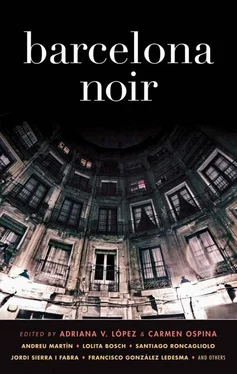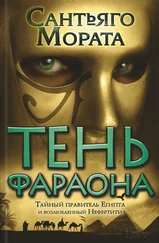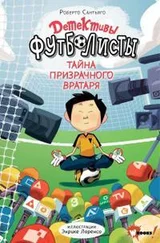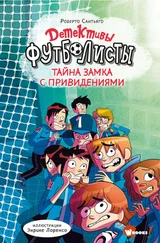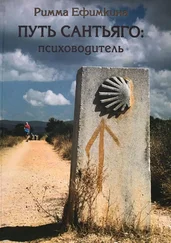Сантьяго Ронкальоло - Barcelona Noir
Здесь есть возможность читать онлайн «Сантьяго Ронкальоло - Barcelona Noir» весь текст электронной книги совершенно бесплатно (целиком полную версию без сокращений). В некоторых случаях можно слушать аудио, скачать через торрент в формате fb2 и присутствует краткое содержание. Город: New York, Год выпуска: 2011, ISBN: 2011, Издательство: Akashic Books, Жанр: Детектив, на английском языке. Описание произведения, (предисловие) а так же отзывы посетителей доступны на портале библиотеки ЛибКат.
- Название:Barcelona Noir
- Автор:
- Издательство:Akashic Books
- Жанр:
- Год:2011
- Город:New York
- ISBN:978-1-936070-95-4
- Рейтинг книги:5 / 5. Голосов: 1
-
Избранное:Добавить в избранное
- Отзывы:
-
Ваша оценка:
- 100
- 1
- 2
- 3
- 4
- 5
Barcelona Noir: краткое содержание, описание и аннотация
Предлагаем к чтению аннотацию, описание, краткое содержание или предисловие (зависит от того, что написал сам автор книги «Barcelona Noir»). Если вы не нашли необходимую информацию о книге — напишите в комментариях, мы постараемся отыскать её.
Barcelona Noir — читать онлайн бесплатно полную книгу (весь текст) целиком
Ниже представлен текст книги, разбитый по страницам. Система сохранения места последней прочитанной страницы, позволяет с удобством читать онлайн бесплатно книгу «Barcelona Noir», без необходимости каждый раз заново искать на чём Вы остановились. Поставьте закладку, и сможете в любой момент перейти на страницу, на которой закончили чтение.
Интервал:
Закладка:
Tino greeted them with his hat in his hand, a bow, and a discrete smile, and didn’t bat an eye when he saw the pistol on one of the men’s belts. Back then, a lot of people carried pistols. For assault or defense, or both. After they made themselves comfortable in the back, he took the wheel.
“To Mataró?” he asked.
“To Mataró,” said the man in the felt hat. Then he instructed Tino on the exact route he should take. “Go around Parc de la Ciutadella to the fish market on Icaria Avenue, then take Taulat Street to the highway toward France, along the seaside.”
Tino might have taken the same route on his own, but the precision of the passenger’s directions disconcerted him nonetheless, because it ushered him inexorably into a world he wanted to leave behind and which he did not like to visit.
They abandoned the wide boulevards, moved past the big modernist park, and immediately found themselves on Icaria Avenue, with its anarchist echoes. Icaria was the name of the utopian society that was founded here by Étienne Cabet, in which all people would be equal and money would not exist — such was his dream. Later, Cabet would go to the United States and make a new Icarian attempt in Nauvoo, Illinois.
Today, in the twenty-first century, Icaria Avenue is a pleasant road with trees and sculptures from that Barcelona which, in 1992, with the Olympic Games in mind, discovered the neighboring Mediterranean. That day, however, it was just the filthy and hectic main street in Catalonian Manchester.
During the First World War, Spain had been neutral and that created an opportunity to provide whatever was needed by both sides. Whatever the war destroyed, Barcelona’s industry would replace. Especially fabric. Fabric for uniforms, for blankets, for tents. But also kegs, chemical and metallurgical products... Factories cropped up by the beach and the first railway in the Spanish state was laid to carry merchandise to nearby ports, where boats were waiting, and from there long trains would transport loads to faraway France.
Catalonian Manchester was what we called that hodgepodge of dirty, arrogant factories, and the little workers’ houses that blossomed around it were called Poble Nou. The factories produced money, a lot of money, for the proprietors, providing huge Spanish-Swiss cars and fur coats and sumptuous feasts with tangos and the Charleston. And also spectacular buildings that are still admired by tourists from all over the world.
They drove alongside the train tracks, between the miserable shacks where dirty, naked children splashed in the mud made toxic by the industrial waste from nearby factories.
“It’s infuriating how these poor people live and how the bourgeoisie live downtown,” said one of the passengers in a shaky voice. “Two worlds, so close and so far away.”
“Shut up, Manuel,” said the other voice.
At the end of Icaria Avenue, there was the oldest cemetery in the city, with a façade that seemed like an homage to the most shameless masonry, with the eyes of God looking out at everything from five meters high, where the walls were washed with tar to cover the messages the authorities considered inappropriate.
They drove past the misery of cardboard and wooden-plank shanties and came upon the misery of dusty yards and what was once Horta’s creek, which today houses the haughty Gotham that is Diagonal Mar, filled with skyscrapers like this city has never seen or wanted to see. Then there was a depressing wasteland of warehouses and train platforms and an artillery barracks with chipped walls, wilted tomato and lettuce plants, and a train crossing.
One of the men in the back placed the barrel of his gun under Tino Orté’s ear.
“Now, go left. Down that road. Toward the woods up there.”
Tino obeyed. Petrified. His mouth dry. It had to happen to him. In this cursed city of bombs, sooner or later, you were hit by shrapnel.
“Don’t be afraid,” the other one said, less aggressively. “We don’t want to hurt you. We’re workers, like you. This isn’t about you. We need money for the Committee for Prisoners.”
They arrived at the edge of the woods. Below them, the Mediterranean light yellowed the landscape.
“There’s Jiménez.”
A man smoked with ease next to the tracks, looking out toward the city of Barcelona.
“Here comes the train.”
The train arrived, spewing smoke every which way, working up an infernal racket. It whistled long, warning the crossing guard to put down the barrier, like he did each day.
“If he doesn’t do anything, it means there’s nothing new.”
“He’s not doing anything. What’s he supposed to do?’
“Take off his hat.”
“Well, he hasn’t taken off his hat, and there’s the train. Run — what are you waiting for?”
The man in the derby leaned against the car window, his pistol still on Tino, watching him with the serene eyes of someone who wishes no harm but is willing to follow through on his threats if he’s obliged to.
The man in the felt hat ran in the direction of the crossing.
The train cars were uncovered and carried five hundred workers toward the future, to build someone else’s future, but they were happy and excited now because it was a payday. The payroll was in a strongbox guarded by two armed men.
The man in the felt hat reached the crossing guard, who was about to comply with his daily routine. Even from afar, Tino could see how he jumped a little when he saw the gun. Then Tino heard: “Quiet! Today the barrier won’t be coming down!” The employee raised his hands and stepped back from the barrier.
The man named Jiménez, who had seemed to be basking in the sun, now fisted a pistol and ran toward the convoy, which was braking with an agonizing screech like the voice of a Greek tragedy’s hired mourner before the disaster. That ferocious machine had the initials M.Z.A. engraved on its side.
Tino thought he glimpsed a man climb on top of the locomotive and then jump down to the cabin. What he couldn’t see were the two men who’d come along disguised as workers in the multitude and who, guns in hand, were trying to scare the others so they’d go away. There was a hell of a commotion, shots, five hundred people trapped and scattering every which way in panic.
The only people who stayed behind, by themselves in one of the uncovered cars, were two armed men next to a trunk that was a meter long and half a meter tall. One already had his hands up, and even from two hundred meters away it was obvious he was shaking with fear and about to lose his balance. The second, however, was unbolting the safety on the Mauser, but not before the other three arrived and fired at him.
He fell like a sack of potatoes. In the distance, Tino thought it looked incredibly easy to kill someone.
One of the men who’d shot the guard, the most animated, dressed all in black and wearing espadrilles, threw the cash box on the ground. The man called Jiménez and the two dressed as workers picked it up. A fourth man jumped from the cabin and joined them.
The locomotive immediately sounded its alarm, but the shots continued, overwhelming the cries from the scattering crowd.
Tino realized then that some soldiers from the nearby artillery barracks were running toward the train and firing with each step. Right then, he felt like an accomplice to the assault and knew he was gambling everything in his life: his savings, his taxi, his family, his apartment in Gràcia.
His hand went to the wheel, he wanted to leave. But he was dissuaded by the man in the derby, with his serene eyes and his pistol.
“Be cool.”
“For the love of God,” Tino whispered.
“Not for the love of God, nor the homeland, nor the king.”
The man in black, carrying the cash box with the guy called Jiménez, dashed toward the car, followed by the man in the felt hat, one of the men disguised as a worker, and the one who’d jumped from the cabin. The soldiers got to the train, climbed aboard, and took aim.
Читать дальшеИнтервал:
Закладка:
Похожие книги на «Barcelona Noir»
Представляем Вашему вниманию похожие книги на «Barcelona Noir» списком для выбора. Мы отобрали схожую по названию и смыслу литературу в надежде предоставить читателям больше вариантов отыскать новые, интересные, ещё непрочитанные произведения.
Обсуждение, отзывы о книге «Barcelona Noir» и просто собственные мнения читателей. Оставьте ваши комментарии, напишите, что Вы думаете о произведении, его смысле или главных героях. Укажите что конкретно понравилось, а что нет, и почему Вы так считаете.
